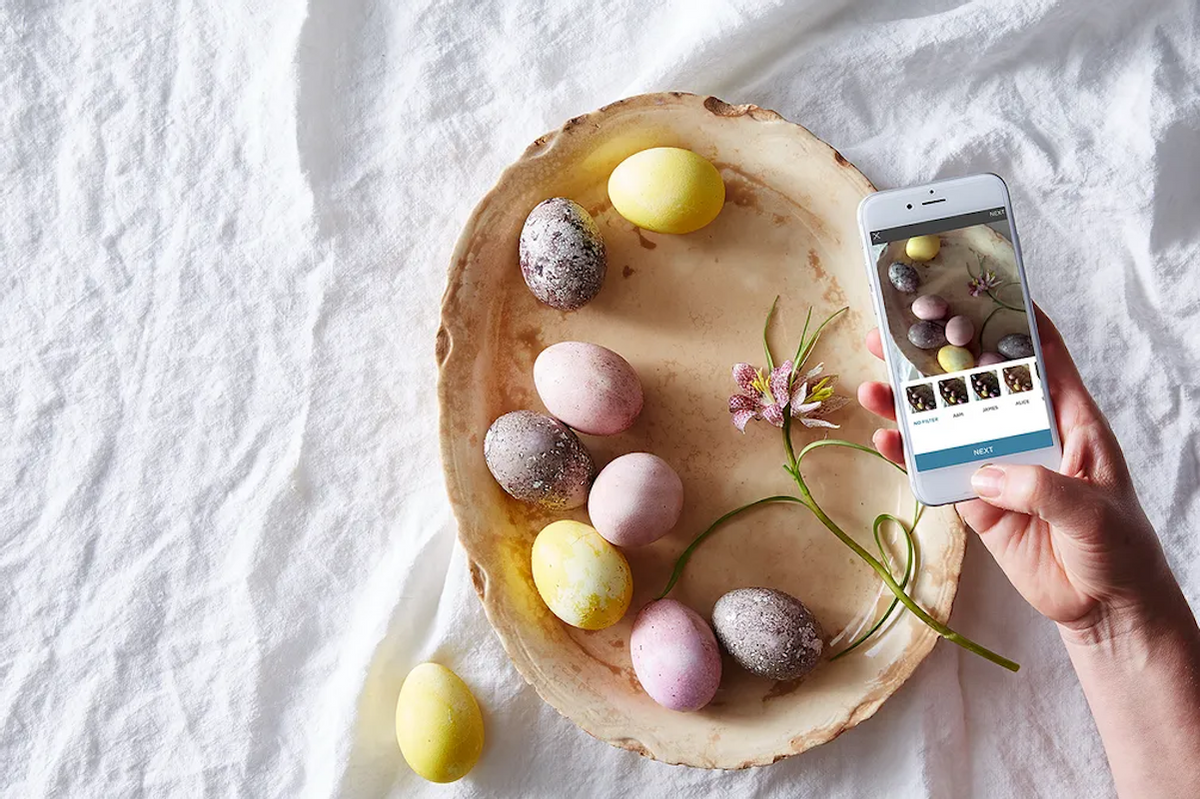Every year on the Saturday before Easter, my family gathers around our kitchen table and dyes eggs together. We fill my parents' set of Corelle Shadow Iris mugs with hot water, a splash of white vinegar, and a few drops of every shade of dye in our box of McCormick food coloring. We grab spoons and toothpicks, rubber bands and Q-Tips, and begin to discuss décor ideas: pink ombré, a warm sunrise, stripes and polka dots, or a cross crafted out of the aforementioned rubber bands.
But before dyeing said Easter eggs, my dad spends part of the morning carefully cooking eggs for our favorite holiday craft. Turns out, there's no real difference between cooking perfect hard-boiled eggs for a quick breakfast or eggs for Easter. If anything, it's slightly easier to boil eggs for coloring because you don't need to worry about any "easy-peel methods" — such as adding baking soda to the boiling water or letting the eggs cool off in an ice bath for five minutes post-cook, pre-peel. Here's how you do it.
Hard-boiled egg how-to
To cook hard-boiled eggs for Easter, fill a medium saucepan with water and gently place the eggs in a single layer in the pot, giving them a little bit of breathing room. If you crowd them together, they're more likely to crack. Bring the water to a boil and as soon as a fury of bubbles break the surface, cover the pot and turn off the heat. Let the eggs sit for 12 minutes; then, gently remove them from the pot and transfer them to an egg cradle or a bowl of cold water (we remove using silicone-tipped tongs for this part, as they'll be gentler and less likely to cause the eggs to crack).
If you're not going to color eggs right away, it's important to keep them cold to avoid the growth of salmonella or other foodborne pathogens. "Refrigerate hard-cooked eggs before dyeing them and keep them refrigerated when you are not using them. Do not leave eggs out of the refrigerator for more than two hours," advises the University of Minnesota Extension.
FAQ about Easter eggs
Can you eat colored eggs?
Yes, but exercise caution. There's no harm in eating colored Easter eggs, so long as they have been refrigerated. Speaking from personal experience, you should know that once you crack the colored eggshell, you'll find that some of the dye will have seeped into the egg white, turning it slightly grey. Sounds unappealing, I know, but it's perfectly safe to eat.
However, most people who dye Easter eggs tend to display them throughout the entire day or weekend for decoration. If you plan to do this, do not (I repeat, do not!) eat them. once eggs have been sitting out of the refrigerator for about two hours, they'll begin to develop bacteria like salmonella.
How long do colored Easter eggs last?
Hard-boiled eggs — colored or not — will last for about a week in the refrigerator. The same goes for pastel-hued eyes dyed for Easter.
Can I soft-boil Easter eggs?
Sure, why not? If you prefer softer whites and a runny, jammy egg yolk, you can absolutely cook soft-boiled eggs for Easter dying. Just know that undercooked eggs (like undercooked meat) are more at risk for developing bacteria, so it's extra important to keep them cold.




Shares